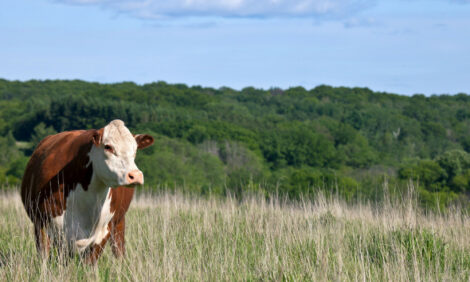



OIE Meeting Delegates Call for More Lab Capacity
QATAR - Capacity-building of laboratories should be the top priority in the Middle East, according to delegates at the 10th Conference of the World Organisation for Animal Health (OIE) Regional Commission in Doha.
Participants in the 10th Conference of the OIE Regional Commission for the Middle-East held in Doha, Qatar from 25 to 29 October 2009 identified support aimed at capacity building of veterinary laboratories in the region is foremost.
"Capacity of laboratories is foremost in the prevention and control of animal diseases including zoonoses as well as in food safety improvement at all stages of animal production," Dr Bernard Vallat, OIE Director General said.
Support has been initiated on laboratory capacity through the OIE Twinning Initiative: potential candidate laboratories are identified in the Middle East for projects on priority diseases which will be twinned with existing OIE Reference Laboratories from other regions of the world. This twinning programme allows direct exchanges of scientists from both twinned laboratories and facilitates building and reinforcing the Veterinary Scientific Community in Middle-eastern countries. This is very important for the participation of the region to the global standard setting mechanisms under the World Trade Organisation SPS Agreement.
Dr Vallat commented: "It is important to convince developed countries which, thanks to huge investments, became free of major infectious diseases, including zoonoses, that the best way to protect their disease-free status is to collaborate with countries still infected with infectious diseases for the diagnostic and eradication of existing diseases from their territory, so they stop to be a reservoir for pathogens."
The OIE will continue to support Member Countries by strengthening the governance of their animal health systems. It will do so through the evaluation of compliance of national Veterinary Services with OIE standards on quality and the support for the upgrading of those services, including of laboratory and veterinary education components, using the OIE-PVS Tool for the Evaluation of Performance of Veterinary Services.
Brucellosis: major threat for public health and obstacle to rural economies
The Conference also evaluated the impact of brucellosis, a major zoonosis, in countries of the Middle East region as a key obstacle to livestock and rural economies with heavy repercussions on public health, food safety and food security, particularly affecting milk production.
"The prevention and control mechanisms that could help contain brucellosis, and in fact any other infectious animal disease, are often not yet properly nor timely applied in several countries of the region," Dr Vallat said.
The assessment made during the Conference points to different factors responsible for the incidence of brucellosis in both animals and humans. The control strategy of the disease should be based on the use of efficient Veterinary Services complying with OIE standards on quality and on a thorough understanding of local and regional variations in animal husbandry practices, social customs, and the epidemiological pattern of the disease.
Vaccination, necessary for ensuring immunity of susceptible animal population, is not broadly applied nor consistently monitored in a number of countries of the region. And in the case of brucellosis outbreaks, appropriate epidemiological surveillance and biosecurity control measures are not always applied.
Also, inappropriate veterinary governance and lack of cooperation between livestock owners and veterinarians are often at the basis of the problem.
"We must insist that good collaboration between veterinarians and cattle owners, is a key factor for success in controlling brucellosis," Dr Ghazi Yehia, OIE Regional Representative for the Middle East, commented.
New OIE standards, Fifth Strategic Plan draft discussed
The Conference was the opportunity for all represented countries to discuss the elaboration of updated OIE standards for the Terrestrial and Aquatic Animal Health Codes.
As part of the democratic process on which the OIE is based, the draft of the Fifth strategic Plan of the organisation was also discussed.
The draft Plan among other things reinforces key strategic guidelines to boost:
- capabilities (training for Delegates and their national focal points) and other actions carried out by the OIE through its five regional representations,
- the OIE's influence on global, regional and national policies for governance mechanisms to improve animal health and on the definition of priorities for scientific research policies,
- the OIE's support role to Member Countries in helping them resolve bilateral or multilateral health disputes, and
- official recognition of the free status of countries on additional diseases, including some relevant equine diseases.
Mr Abdullah Bin Mubarak Bin Abud Al Moadadi Hon. Minister of the Environment of Qatar opened the Conference. He said: "I express gratitude to the support provided by the OIE to Member Countries of the Region and strongly support the actions being undertaken by the OIE to promote the control of animal diseases and zoonoses worldwide and in the region."
Participants in the Conference included higher government officials of OIE Members Countries as well as global (FAO, WHO, etc.), regional and national organisations.
The Conference was kindly hosted by the Government of Qatar. It was chaired by Dr Kassem Nasser Al-Qahtani OIE Delegate of Qatar to the OIE with the support of the OIE Headquarters and the OIE Regional Representation for the Middle-East.
TheCattleSite News Desk


